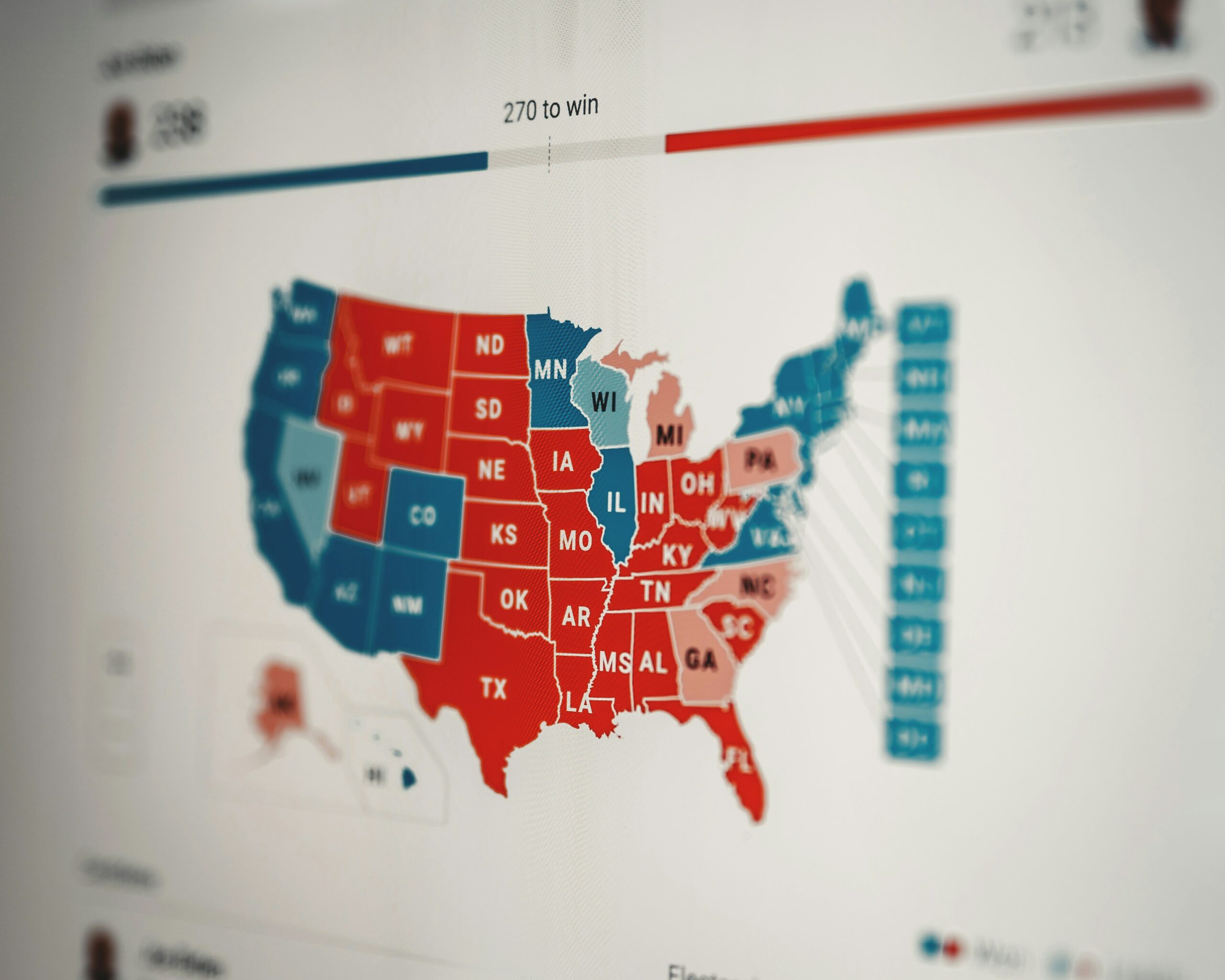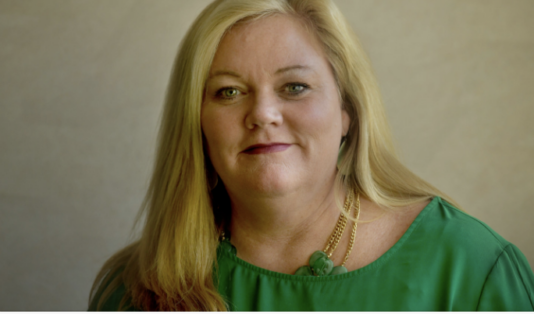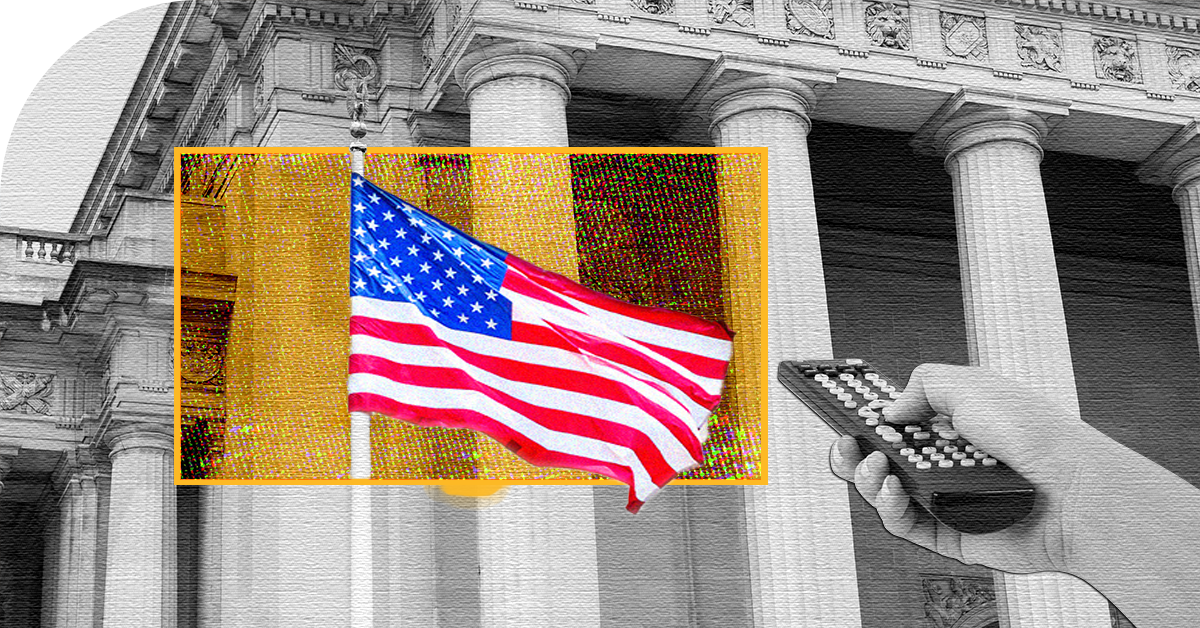Digital advertising has become an indispensable tool for political campaigns, reaching voters, fundraising, and shaping public opinion. As we navigate the complexities of the 2024 election cycle, understanding the nuances of digital advertising is more crucial than ever. In this edition of Choozle Chat, we explore the strategies and challenges of political digital advertising.
Join Choozle’s VP of Marketing, Annie Wissner, and Political Account Executive, Shawn Fox, as they discuss the power of programmatic advertising, the impact of connected TV, the intricacies of targeted messaging, and much more. Whether you’re a campaign manager, political strategist, or digital marketer, this comprehensive discussion will equip you with the knowledge and tools to drive successful political campaigns in today’s digital landscape.
Annie: How do you view political digital advertising? What is it, and why should people care?
Shawn: The great thing about political digital advertising is the ability to target an audience of established voters, particularly primary voters. You can make your advertising very efficient by sending ads directly to those people where your message will resonate.
Annie: What is programmatic political advertising?
Shawn: Programmatic advertising combines the best of targeting and allows you to use multiple tactics on the same audience. For example, you can first send a message to make people aware of your candidacy via a connected TV ad. Once they see your ad, they may want to investigate and look up your platform. As your campaign continues, the goal is to get voters to interact with your ads, so you can share more about your platform, fundraising efforts, and campaign sign-ups.
By running omnichannel campaigns holistically, rather than in silos, you can see how connected TV informs display, which in turn informs audio, retargeting, and more. This integrated approach ensures your message is reinforced across multiple touchpoints, enhancing brand resonance. Studies show that people are statistically more likely to remember an ad after seeing it on multiple devices. This is super important for candidates who are building their brand and communicating their platform issues.
It helps you not only get in front of the right audience but also engage with them in a way that persuades them to support your candidacy.
Annie: What’s your take on Connected TV (CTV) advertising for political campaigns in 2024?
Shawn: Connected TV is gaining traction in political advertising for a great reason. Since the pandemic, streaming television viewership has skyrocketed, especially among younger demographics you can’t reach with traditional TV. Connected TV enables precise targeting, reaching more households than broadcast or cable. It allows you to run an ad for anyone who has seen a competitor’s campaign ad, and even with all those bells and whistles, it tends to be more cost-effective than traditional TV buys.
You can’t reach younger voters on traditional television; CTV offers guaranteed viewership. With traditional television, you have to rely on a very archaic measurement system to determine who actually sees your ad. CTV gives you guaranteed delivered impressions, ensuring your television campaigns are actually reaching voter eyeballs.
Annie: Can you explain more about targeting in digital advertising?
Shawn: Targeting allows you to reach your audience through various devices, such as SMART TVs, laptops, or mobile phones. Unlike the old days of door-to-door canvassing or direct mail campaigns for an entire neighborhood, Choozle’s advanced targeting capabilities enable us to identify and reach the specific households that are most relevant to you. This ensures that your resources are used efficiently, avoiding unnecessary costs associated with reaching an entire neighborhood or, in the case of traditional TV, an entire DMA, which can be wasteful.
Annie: Does Choozle offer demographic targeting for political campaigns?
Shawn: Yes, Choozle offers a variety of targeting options. We use first-party data to target known voters and third-party data to identify people who lean a certain way or care about specific issues. We can target based on demographics like age, gender, income, and education level, as well as interests and geographic areas. Choozle has our own audiences of voting blocks that campaigns can use and we also have access to Trade Desk audiences and many other partners.

Annie: How does Choozle provide the necessary support for political campaigns, especially at the speed of the news cycle?
Shawn: At Choozle, we offer end-to-end support for political campaigns, covering planning, targeting, execution, and optimization. We understand the urgency of political campaigns and provide responsive assistance to keep things moving quickly. By operating at the speed of the news cycle, we ensure seamless campaign management and rapid adjustments to stay ahead of the curve.
Annie: How does digital advertising help with fundraising, specifically with Choozle?
Shawn: Fundraising has become challenging in recent years, and the success of email fundraising has diminished. Digital media helps by engaging with your audience, making them aware of you, and explaining your platform before making a financial ask. People prefer to know the candidate before they receive a fundraising email or text. With dynamic passback pixels, you can tie actual donations and donation value to your programmatic campaigns, allowing you to measure the direct impact of your digital efforts on fundraising.
Annie: What are some other challenges campaign managers are facing in 2024?
Shawn: Early voting is a big challenge. Campaigns used to hold onto their advertising budgets until right before the election, but now, with early voting starting as early as September 20th in some states, it’s crucial to start advertising early to reach voters when they begin to cast their ballots.
Annie: How has the audience changed with the inclusion of Gen Z voters and more millennials?
Shawn: Our political process is moving at the speed of a news cycle, which is now often just hours long. Campaigns need partners who can keep up with these developments and quickly execute strategies that align with current events. Gen Z and millennials are engaged with fast-paced digital content, so timely and relevant messaging is critical.
Annie: How important is compliance in political advertising?
Shawn: Compliance is crucial in political advertising. Campaigns must ensure their creative content is approved and include necessary disclaimers, such as “Paid for by XYZ Campaign,” to build trust with voters. Adherence to Federal Election Commission (FEC) regulations, state-specific rules, and digital platforms’ policies (e.g., Facebook, Google Ads, Twitter) is essential.
Choozle reviews and follows political advertising guidelines before campaigns go live. Caution is needed with microtargeting to avoid discrimination and targeting based on sensitive attributes like race or religion. Compliance with data privacy laws, such as GDPR and CCPA, is also necessary, including obtaining user consent for data collection. Fact-checking claims before publication is important for maintaining accuracy and avoiding misleading statements. Prioritizing transparency, accountability, and fairness helps uphold ethical standards and build voter trust. It’s important to work with a partner who understands the laws around political advertising.
Annie: How responsive is Choozle to clients’ needs in a fast-paced political environment?
Shawn: Choozle has worked with over 1,400 political campaigns and developed a responsive approach. We have a dedicated team for political advertising who can quickly address issues and work directly with partners to expedite processes. This helps ensure the timely execution of campaign strategies.
Annie: What metrics or KPIs do you recommend for measuring the success of political advertising campaigns?
Shawn: Transparency in reporting is key. It’s important to track all tactics used to see what works best. Metrics like ad impressions and clicks are useful, but more important is understanding the secondary actions, like website visits or engagement with your content, which indicate that your message is resonating.

Annie: How should campaigns combat misinformation and negative attacks online?
Shawn: I recommend disabling comments on platforms like Meta and Twitter to avoid disruptive commenters. Candidates must focus on positive messaging about their plans and policies rather than engaging in negative attacks. People respond better to candidates who present a clear and positive vision.
Annie: What tips do you have for optimizing political advertising campaigns?
Shawn: The Choozle platform’s auto-optimization features are invaluable for advertisers, as they identify top-performing tactics and automatically allocate resources accordingly. Unlike traditional TV, where political schedules can be disrupted, Choozle offers specific private marketplace CTV deals that target heavy news consumers on channels like MSNBC, CNN, CNBC, Fox News, and Fox Business, ensuring your ads run as planned. Regularly reviewing campaign metrics every few weeks allows for timely adjustments, and having a responsive partner to help analyze and adjust strategies is crucial for success.
Annie: Thank you, Shawn. Your insights have been incredibly valuable.
Shawn: It’s my pleasure. The team at Choozle is excellent, and our platform has had great success in the political realm. Thank you for having me.
Closing Thoughts
The shift toward digital media offers unparalleled opportunities for precise targeting, efficient fundraising, and timely engagement with voters. Compliance and responsiveness are also crucial, ensuring campaigns run smoothly and messages are effectively delivered. As political campaigns adapt to fast-paced news cycles and younger voters’ preferences, a robust digital strategy is essential.
By leveraging the insights and strategies discussed in this blog, campaign managers and political strategists can optimize their digital advertising efforts, combat misinformation, and ensure their messages resonate with the intended audience. Stay ahead in the digital landscape, and make your next political campaign successful.

Shawn Fox
Shawn brings over 20 years of digital advertising experience, specializing in political campaigns. She began her career in publishing, where she launched and grew a digital division. In 2013, Shawn transitioned to political advertising, working with major campaigns through her role at The Detroit Media Partnership, including President Obama's. After that, she worked with a political firm that focused on digital strategy and fundraising.
At Choozle, Shawn leverages her expertise in digital targeting, programmatic advertising, and compliance to help clients achieve their campaign goals efficiently. Known for her responsiveness and adaptability, she excels in the fast-paced political environment. Shawn's deep understanding of digital media and commitment to campaign success make her a key asset to any team.





